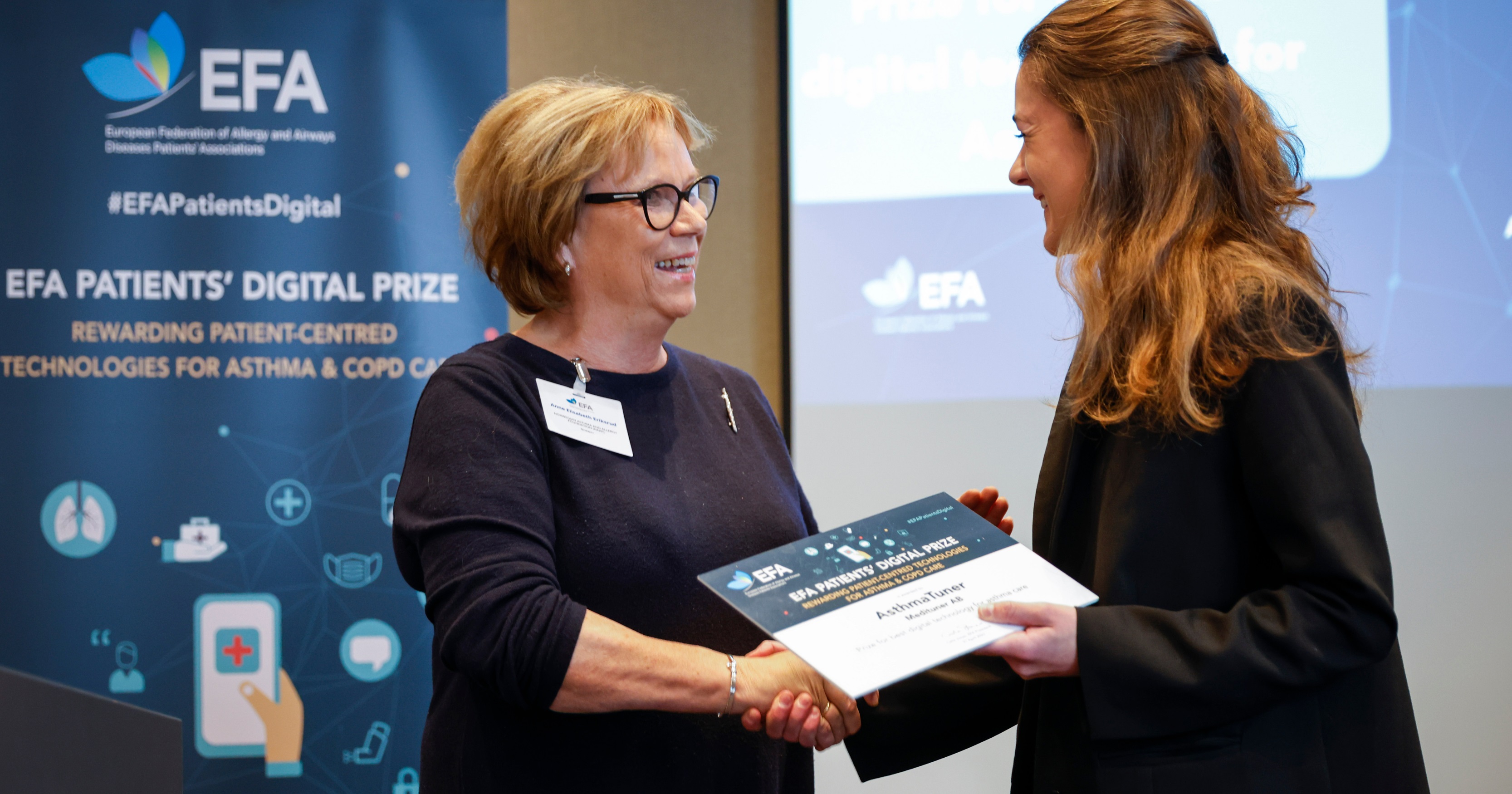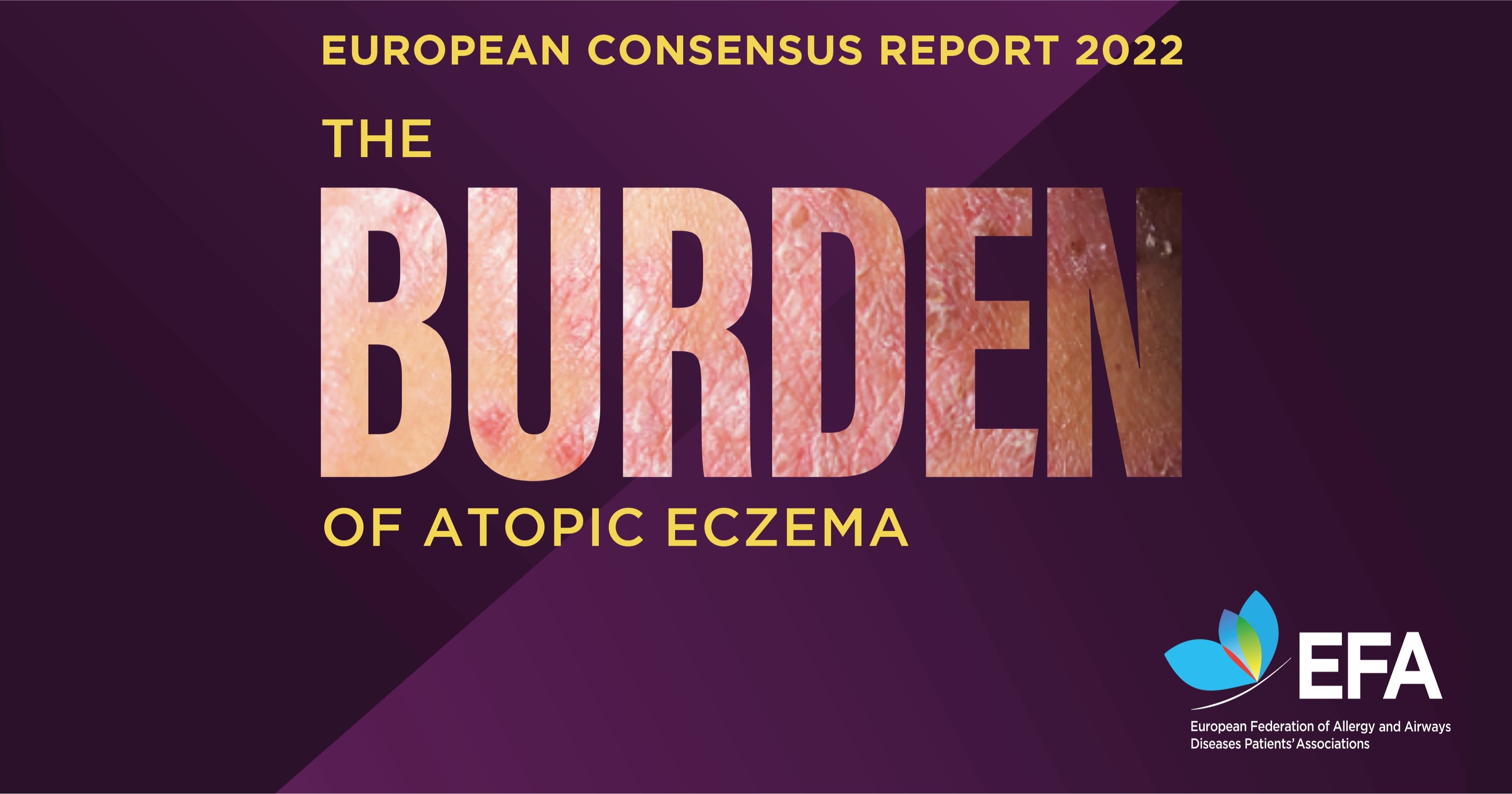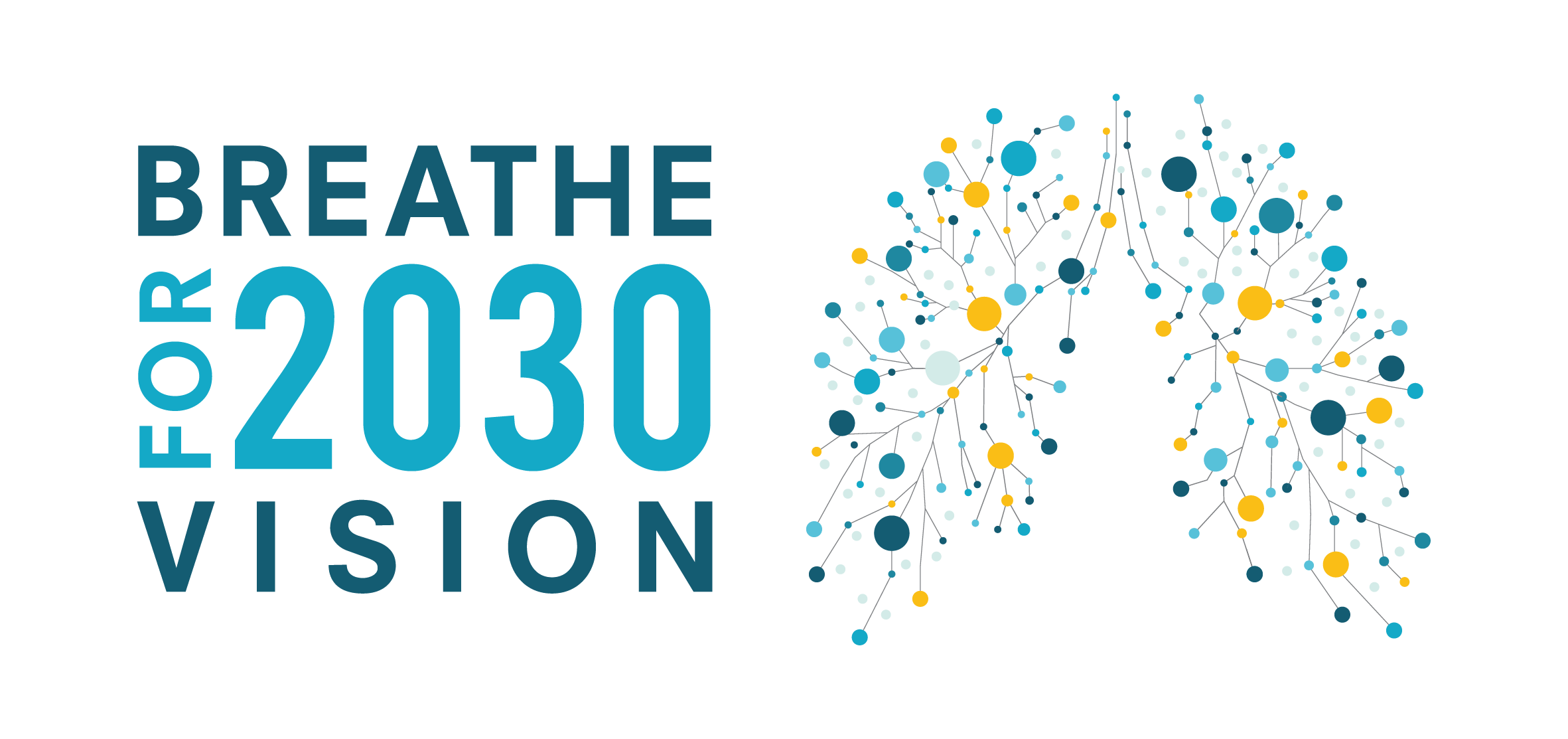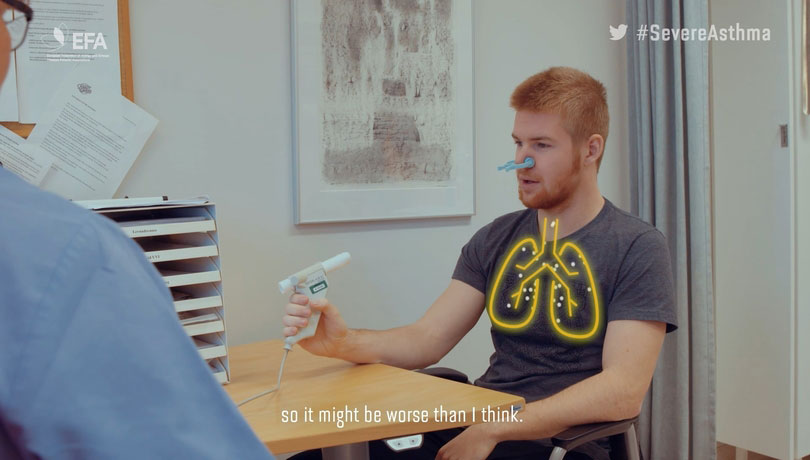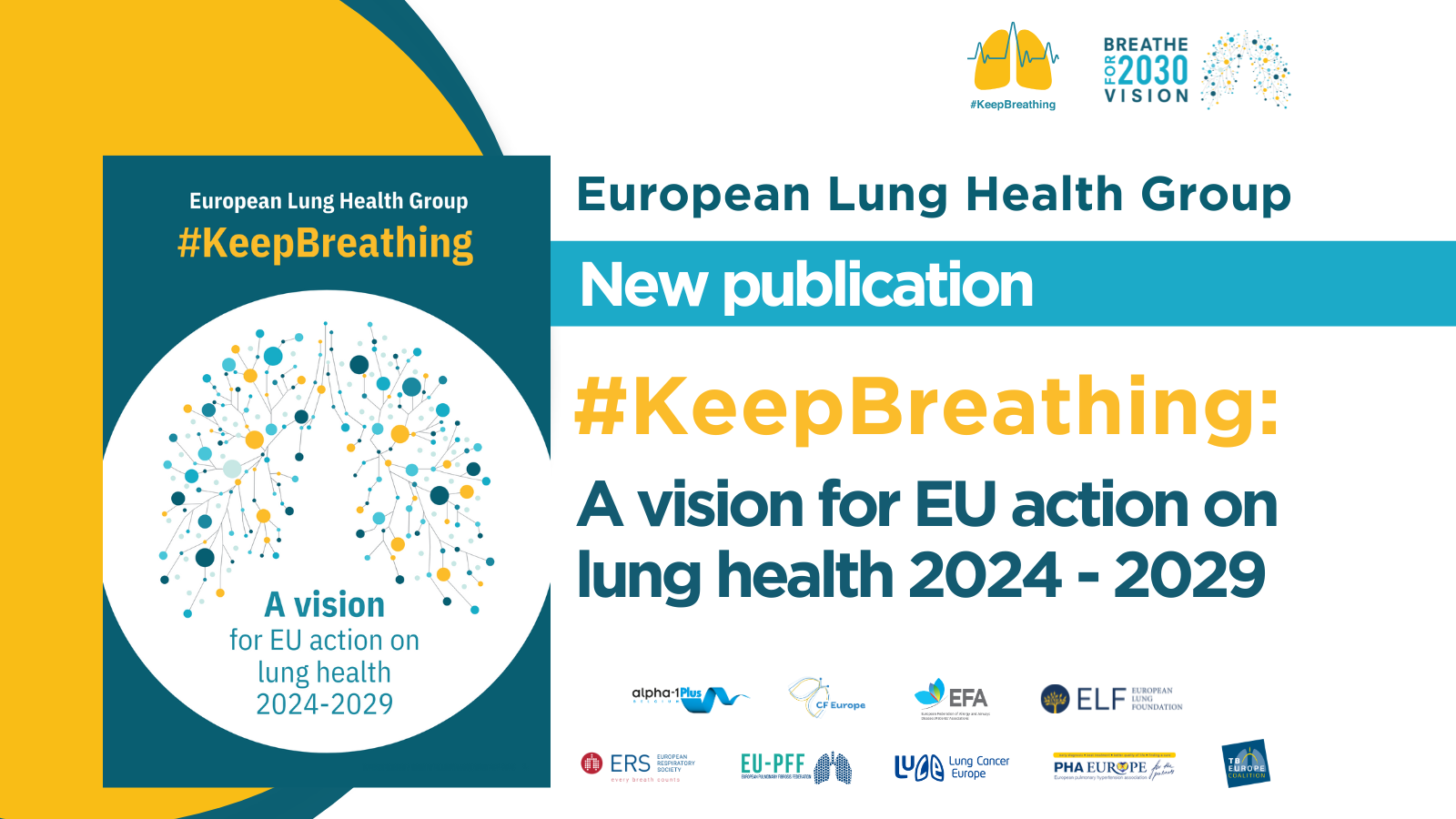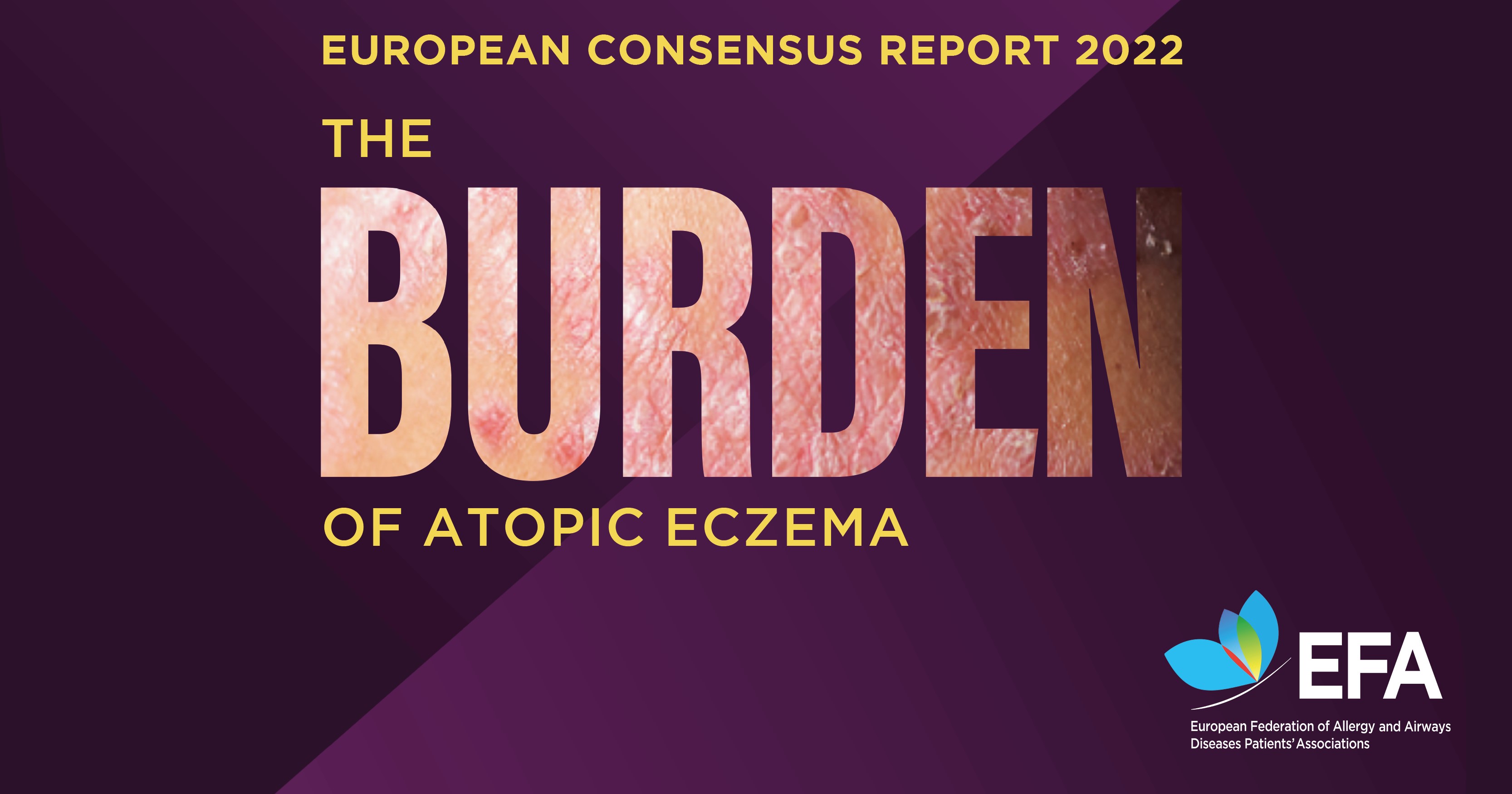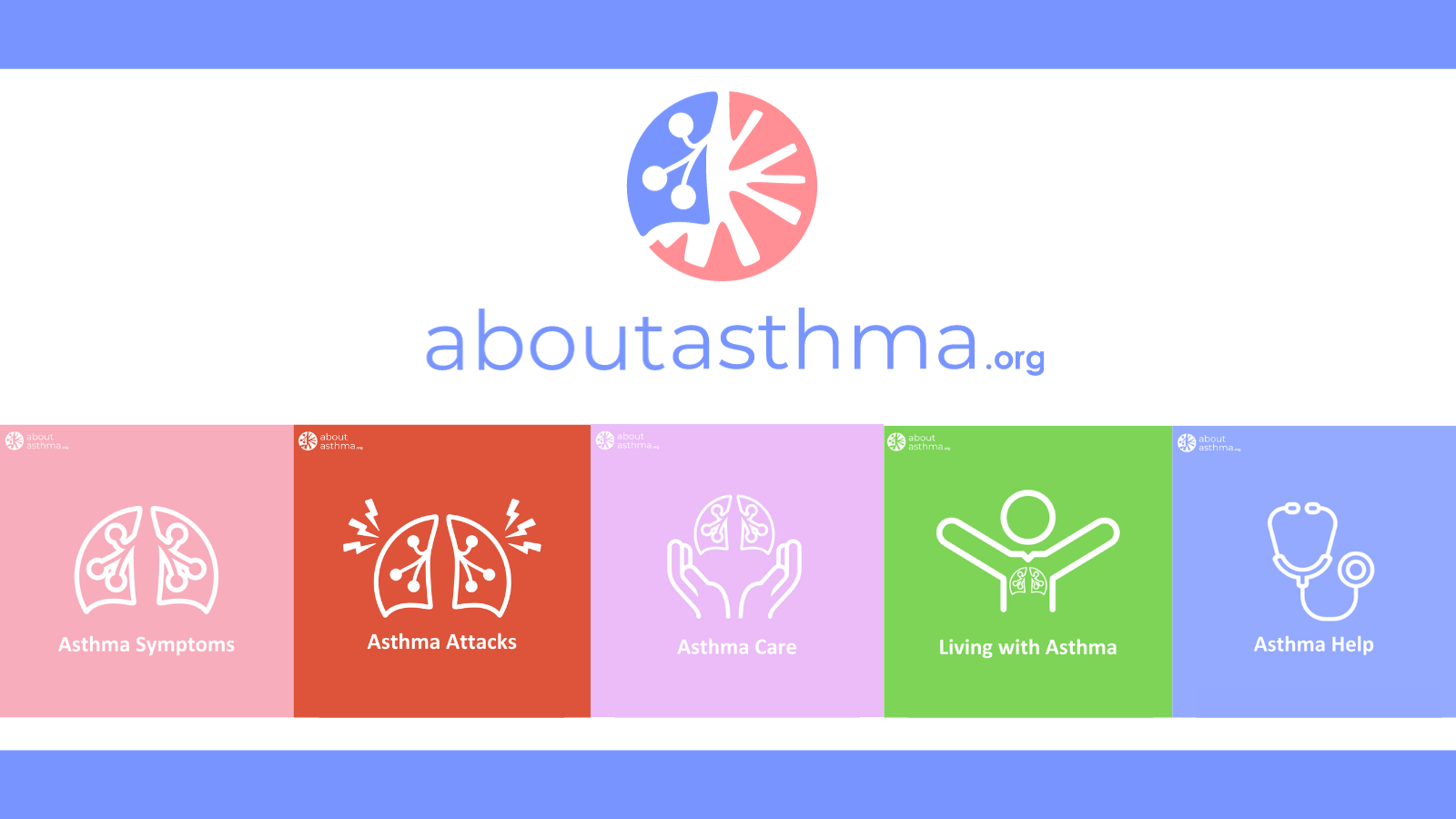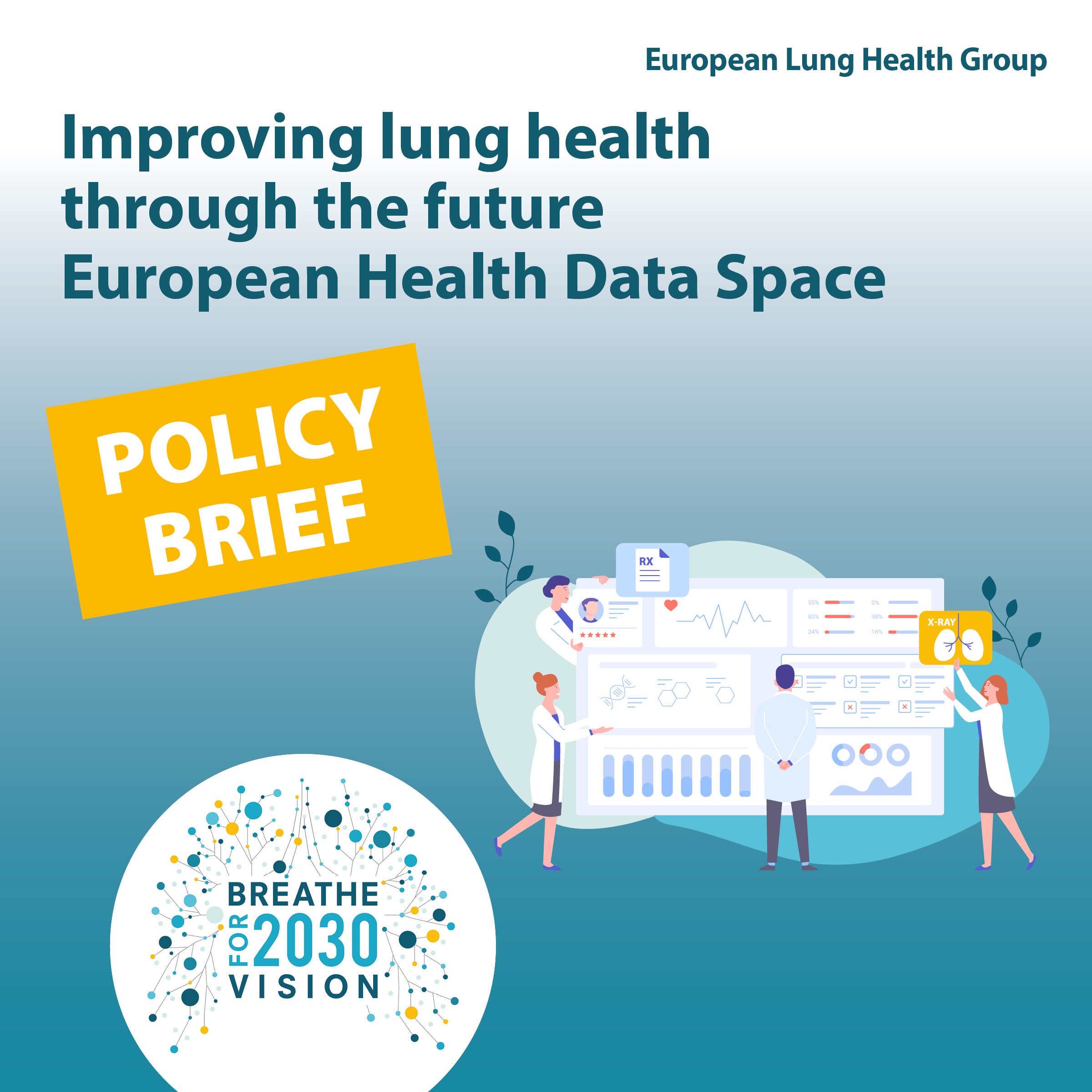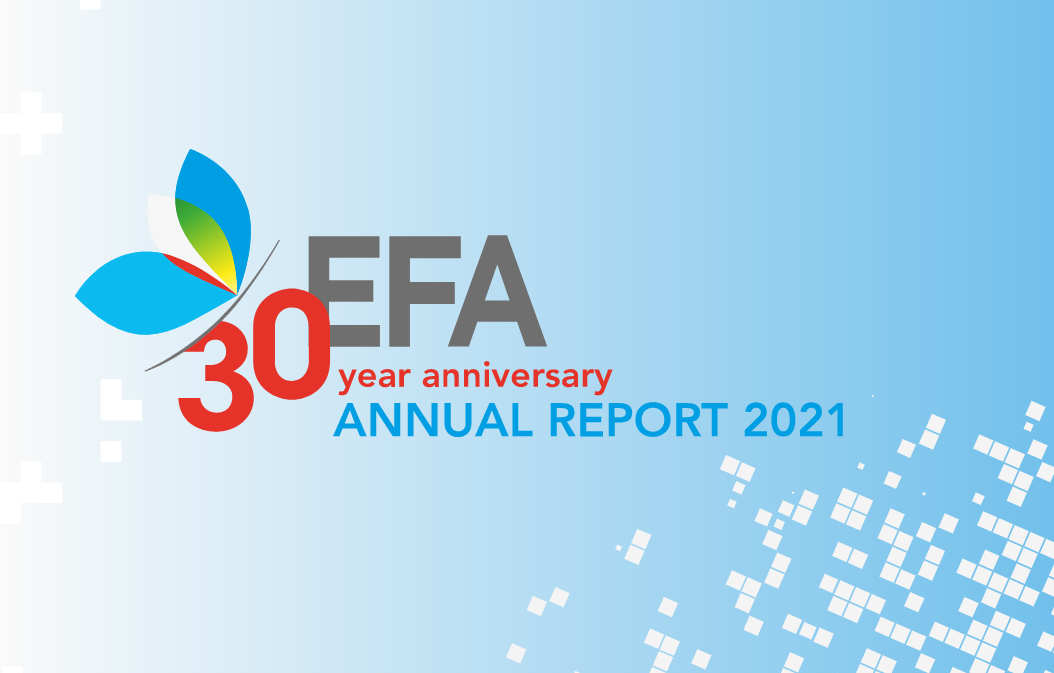Show you care about patients, show leadership! This is how the allergy, asthma and COPD patient community kick-starts the new decade. With a new roadmap and full of energy, EFA continues advocating to improve the situation for people living with allergies and airways diseases. An interview with EFA President Mikaela Odemyr.
Q: Mrs. Odemyr, what is your résumé for 2019 and what are EFA’s plans for 2020?
2019 was a big success for EFA, with lots of activities and events in the European Parliament and our national member organisations. With two major EFA reports, we showcased the needs of allergy, asthma and COPD patients in Europe and provided a great patient-evidence base for policymakers.
In 2020, we will definitely continue to #ShowLeadership. We have defined an ambitious roadmap to do so, based on our three main pillars INFORM, PREVENT and CARE. These will be our main focus in the upcoming years.
Q: Can you explain more a bout Inform, Prevent and Care?
bout Inform, Prevent and Care?
At EFA we have developed a roadmap that takes into consideration our status quo and outlines where we want to be after this rather new European legislative term.
On the one hand, we need to INFORM patients, by fostering empowerment and involvement in decision-making processes that affect their health and well-being. Patient participation should be embedded as a cornerstone of EU health policymaking. But we also need to inform policymakers and other relevant stakeholders about policies that benefit patients, as for example regional and national plans on chronic disease detection and disease specific management programmes.
Effective policies can also support healthier and more productive lives and PREVENT the risk of becoming a patient or exacerbating existing conditions. Addressing the challenges faced by people living with allergies and airways diseases, the scope needs to be extended to include areas such as environment, food, transport, research, employment and consumer products.
As a last pillar, we need to ensure equal access to the same high-quality CARE for patients in all European countries. Currently, only one-third of asthma and COPD patients have access to specialized centres and less than one-fifth of patients can access patient-centered or multidisciplinary care. We need European guidelines that support the move towards personalised treatments and that encourage higher involvement of respiratory specialists.
EFA President Mikaela Odemyr, EFA 2020
Q: What are major issues that EFA will be working on in the upcoming years?
Certainly, one of the priorities will be air pollution. Air quality is an important issue as it not only affects asthma and COPD patients but also people living with allergies. Fortunately, the EU Commission’s Green Deal recognizes the importance of good air quality, but there needs to be done much more to limit indoor and outdoor pollution and traffic emissions.
We will closely monitor the follow up on the EU Air Quality Directives fitness check. As the Green Deal acknowledges, the EU air quality legislation should be updated as to meet the standards set in the WHO Air Quality Guidelines.
Another important field will be smoking, which is still the deadliest preventable source of disease with around nine million deaths every year. We will be working for initiatives that tackle first and second-hand smoke and better promote effective smoking cessation programmes. And we will closely follow developments in vaping and e-cigarettes usage and legislation.
Having launched the EFA FoodDETECTives Report in late 2019, food labelling will also remain part of our work. One in five Europeans lives experiences food reactions, and the best therapy is abstention from the allergen causing reactions. Yet, these allergens must be recognisable to the consumer.
What is needed is an all-encompassing EU-wide approach to precautionary allergen labelling in prepacked food as well as sufficient information on allergens in non-prepacked food.
And of course, we will be working also on other risk factors, including chemicals, unsafe work environments and consumer products that can directly or indirectly cause allergies – 79 % of patients believe that chemical products impact their condition. In particular, atopic eczema must be tackled.
Q: This seems to be an ambitious work programme for EFA?
It definitely is. But we can see from our studies that, despite there are improvements in the access to specialists and professional care, we need to be that ambitious. Patients know their risk factors quite well, yet they feel they are not taken seriously and are neglected by policymakers.
Also we see that patients are not empowered to self-manage their disease or are not enough involved in decisions about their therapy – more than half of asthma and COPD patients do not have a written management plan. And if they do, it has mostly been defined by their healthcare professional without involving the patient in the process.
We clearly see that we need to improve disease management. More than half of severe asthma patients had been to the emergency room during the previous year. I am not talking about hospitalization, it is the emergency room. As a mother of a child with asthma I know what it means to go to the hospital and I can tell you, this number is definitely too high. People need to understand that if there is an emergency, management has failed.
Q: What is your five-year vision for health and patients in Europe?
Five years from now I wish to see an improvement of the current situation for people living with allergies, asthma and COPD. I wish patients having the possibility to make use of digital tools, and the growing potential these new technologies bring for disease management and consultations with general practitioners and specialists.
I wish to see consistent health risk assessment and a European policymaking that actively seeks for patients’ input and expertise. I wish to see clear guidelines on precautionary allergen labelling, and more efficient smoking cessation programmes. And very important, I wish to see that patients have access to the care they need, to the care they deserve, and that they are more actively involved in the decisions that are being made about them.
The EFA Roadmap can be found here.
